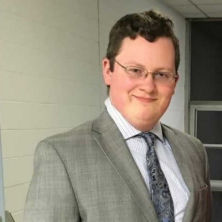What Great Minds Can Do: William Pindell

Could you describe your final project?
My topic relates to American misconceptions of Austria during the interwar period.
I tried to bring more attention to Austria's importance in the events leading up to
World War II. My method was to analyze which popular and official American views were
and how they were selectively informed with regards to the looming specter of the
Anschluss and Austria. I argued that Americans have not understood Austria without
an understanding of Germany, and that it is an inadequate way to view, not simply
Austria, but other nation-states as well. Austria was (and arguably, is) a vital player
in the development of Eastern European affairs; it is not just "the other Germany."
Austria is a unique case of sharing a language but slightly different values with
Germany. It is a crossroads which has been viewed as a bulwark against Communism,
a hot bed of intellectual radicalism and a complex nation-state still grappling with
its national identity.
Could you describe your research process?
I did some archival research at College Park in Maryland, looking through State Department
documents preserved on microfilm from the 1920s and 1930s. While consulting diplomatic
records, I compared them to contemporary newspaper articles from that time period,
seeing which topics Americans wanted to see or were being fed. The majority of the
State Department documents I examined were diplomatic dispatches from the U.S. Ambassadors
in Vienna. I found that a lot of the government's perceptions of Austria were related
to fears of Austrian instability being caused by Nationalist, Socialist or Populist
unrest.
The archival research has been an amazing learning experience. I know it will be helpful
as I move into my graduate thesis project to be more familiar with researching in
archives. Now, it's a question of refining my argument with the valuable assistance
of faculty members in the History Department.
What has been your favorite history course?
I am a student of the University Honors program and I’ve enjoyed how each and every
course from the program weaves together a complex portrait of World History, Philosophy,
Political Science, Sociology and cross-cultural dialogues. I would probably say the
third of the four colloquiums of the Honors program was my favorite because it contained
readings in 17th-, 18th- and 19th-century Europe.
What has been your favorite non-history course?
I'd say my favorite non-history course would be "Philosophy of Time" with Dr. Travis
Timmerman. The course challenged my notions of how the conceptions we hold of time
are biased as well as dissecting the many contradictions of theoretical time travel.
Career Highlights:
• Honors Program
• Treasurer, History Club
• Member, Philosophy Club
